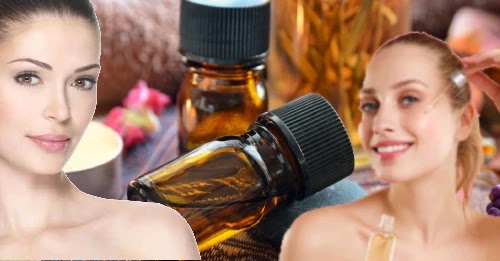 |
| What Essential Oils are Best for Oily Skin |
Each person has a unique skin type, and when it comes to oily skin, many people are hesitant to apply anything to their face. However, this article explores the world of natural skin care and highlights the benefits of using Essential oil for oily skin. This type of Essential oil is known for its powerful antibacterial properties that can fight excess sebum and acne. It can also help to soothe inflammation and regulate oil production, which provides a calming solution to oily skin problems. Moreover, this oil has rejuvenating properties that can balance sebum levels and tighten pores, promoting a clear complexion. Not only does it control oil production, but it also has a calming effect on the skin, helping it to regenerate. By following our expert insights and practical tips, you can transform your skincare routine and embrace the natural power of essential oils for oily skin.
Our detailed guide reveals What Essential Oils are Best for Oily Skin, helping you achieve a balanced and glowing complexion.
What Essential Oils Are Best for Oily Skin
 |
| What Essential Oils Are Best for Oily Skin |
1. Tea Tree Oil
- Tea tree oil is renowned for its antibacterial and antifungal properties, making it effective in combating acne-causing bacteria.
- It helps to reduce excess oil production by regulating sebum production.
- Tea tree oil can be applied topically to blemishes as a spot treatment or diluted with a carrier oil (such as jojoba or coconut oil) and applied to the entire face.
- Due to its potency, it's important to dilute tea tree oil before applying it to the skin to avoid irritation. A general guideline is to use a 1-2% dilution.
2. Lavender Oil
- Lavender oil possesses antibacterial and anti-inflammatory properties, which can help soothe irritated skin and reduce redness associated with acne.
- It helps to balance oil production and promotes overall skin health.
- Lavender oil can be diluted with a carrier oil and applied to the skin, or a few drops can be added to a gentle facial cleanser or toner.
- Its calming scent also makes it suitable for aromatherapy, which can help reduce stress-induced oiliness.
Read This: Indian Home Remedies for Oily Skin | Oily Skin Remedies
3. Clary Sage Oil
- Clary sage oil regulates sebum production, making it beneficial for oily skin.
- It also has antibacterial properties that can help prevent acne breakouts.
- Dilute clary sage oil with a carrier oil and apply it to the skin, or add a few drops to a facial moisturizer.
- Clary sage oil should be avoided during pregnancy due to its potential to induce contractions.
4. Geranium Oil
- Geranium oil helps to balance oil production and tighten pores, making it beneficial for oily and acne-prone skin.
- It also has antibacterial properties that can help combat acne-causing bacteria.
- Dilute geranium oil with a carrier oil and apply it to the skin, or add a few drops to a facial toner.
- Geranium oil has a floral scent that can uplift mood and reduce stress.
5. Juniper Berry Oil
- Juniper berry oil is a natural astringent that helps to tighten pores and reduce excess oiliness.
- It has antibacterial properties that can help prevent acne breakouts.
- Dilute juniper berry oil with a carrier oil and apply it to the skin, or add a few drops to a facial cleanser.
- Juniper berry oil should be avoided during pregnancy.
6. Rosemary Oil
- Rosemary oil has astringent properties that help to tighten pores and reduce excess oil production.
- It also has antimicrobial properties, making it effective in preventing acne breakouts.
- Dilute rosemary oil with a carrier oil and apply it to the skin, or add a few drops to a facial toner or mask.
- Rosemary oil has a stimulating aroma that can help improve focus and mental clarity.
7. Lemon Oil
- Lemon oil is a natural astringent that helps to control oil production and tighten pores.
- It has antibacterial properties that can help combat acne-causing bacteria.
- Dilute lemon oil with a carrier oil and apply it to the skin, or add a few drops to a facial cleanser or toner.
- Due to its photosensitivity, lemon oil should be used with caution, especially if you're exposed to sunlight. Avoid sun exposure for at least 12 hours after applying lemon oil to the skin.
8. Cypress Oil
- Cypress oil is a powerful astringent that helps to regulate sebum production and minimize the appearance of pores.
- It also has antimicrobial properties that can help prevent acne breakouts.
- Dilute cypress oil with a carrier oil and apply it to the skin, or add a few drops to a facial moisturizer or toner.
- Cypress oil has a fresh, woody aroma that can promote relaxation and mental clarity.
9. Frankincense Oil
- Frankincense oil helps to balance oil production and promote skin regeneration, making it beneficial for oily and acne-prone skin.
- It has anti-inflammatory properties that can help soothe irritated skin and reduce redness.
- Dilute frankincense oil with a carrier oil and apply it to the skin, or add a few drops to a facial serum or moisturizer.
- Frankincense oil has a warm, resinous scent that can promote a sense of calm and well-being.
Note: When using essential oils for oily skin, it's essential to choose high-quality, pure oils and dilute them properly to avoid skin irritation. Additionally, if you're pregnant, nursing, or have any underlying health conditions, consult with a healthcare professional before using essential oils.





0 Comments